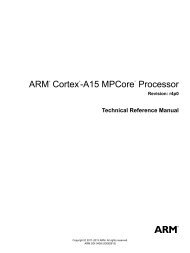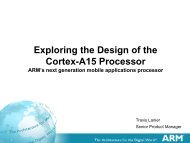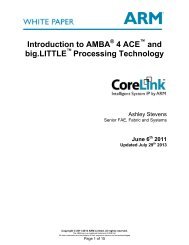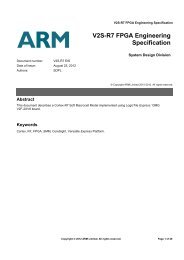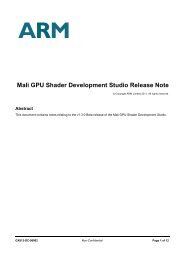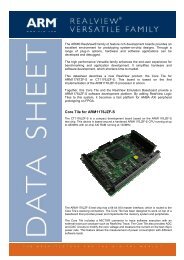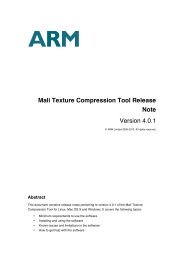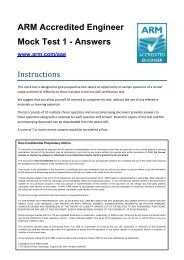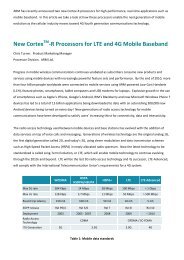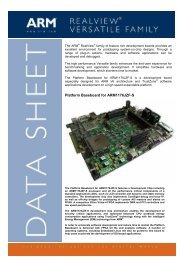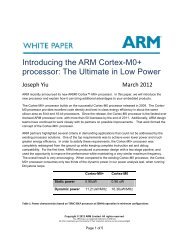32‐Bit Microcontroller Code Size Analysis - Arm
32‐Bit Microcontroller Code Size Analysis - Arm
32‐Bit Microcontroller Code Size Analysis - Arm
You also want an ePaper? Increase the reach of your titles
YUMPU automatically turns print PDFs into web optimized ePapers that Google loves.
Additional investigation on floating point<br />
When analysing the results of the whetstone benchmark it became apparent that the MSP430 C<br />
compiler only generated single precision floating operations, while the ARM C compiler generated<br />
double precision operations for some of the math functions used.<br />
After changing the code to use only single precision floating points the code size reduced<br />
dramatically and resulted in much smaller code size than the MSP430 code size.<br />
The IAR MSP430 compiler has an option to define floating point : “<strong>Size</strong> of type double” which is by<br />
default set to 32‐bit (single precision). If it is set to 64‐bit (as in ARM C compiler), the code size<br />
increased significantly.<br />
Program size Generic MSP430 MSP430430F5438<br />
Type Double is 32‐bit 6434 6308<br />
Type Double is 64‐bit 11510 11798<br />
These results match those seen for the ARM Cortex‐M3 processor.<br />
Program size Cortex‐M3<br />
Whetstone modified to use single precision only 4384<br />
Out of box compile for whetstone (use double<br />
precision for math functions)<br />
8496<br />
The option of setting type double to 32‐bit is quite sensible for small microcontroller applications<br />
where the C code might only need to process source data generated from 12‐bit/14‐bit ADC.<br />
Benchmarking using different default types can make a very big difference and not show accurate<br />
comparative results.<br />
ARM <strong>Microcontroller</strong> <strong>Code</strong> <strong>Size</strong> <strong>Analysis</strong> | Additional investigation on floating point 13



